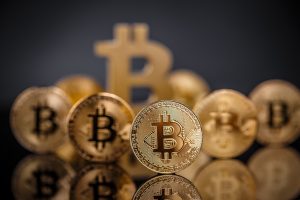In what could have been a devastating blow to the Solana ecosystem, developers quickly fixed a critical zero-day vulnerability that could have allowed malicious actors to mint an unlimited amount of Token-22 confidential tokens or to steal them from user accounts.
According to the post-mortem of the Solana Foundation, released on May 3, the exploit was first uncovered on April 16, and was fixed by two patches, which were adopted by the majority of Solana validators within 48 hours.
What Was the Vulnerability?
The flaw was rooted in Solana’s privacy-focused token extensions, known as Token-22 confidential tokens. These tokens leverage zero-knowledge proofs (ZKPs) to enable private transactions on-chain.
The issue originated from:
- The Token-2022 program, responsible for token logic, and
- The ZK ElGamal Proof module, used to validate those zero-knowledge proofs.
According to the Foundation, an oversight in the Fiat-Shamir Transformation process allowed key algebraic components to go unhashed. This made it theoretically possible for an attacker to generate fraudulent ZK proofs, and thus mint and withdraw fake tokens.
Fortunately, no actual exploits were found, and all funds remain safe, the foundation assured.
Who Fixed It?
Several Solana-affiliated development teams were involved in the emergency fix, including:
- Anza
- Firedancer
- Jito
Independent security research groups such as Asymmetric Research, Neodyme, and OtterSec also contributed to the resolution.
The Bigger Issue: Centralization?
While the fix was swift and effective, not everyone is applauding the way it was handled.
The Solana Foundation coordinated privately with validators to push the fix before any public disclosure—a move that sparked centralization concerns in the crypto community.
A contributor from Curve Finance openly questioned the existence of backchannels between the Foundation and validators, suggesting such relationships could potentially be used to censor transactions or roll back the chain in future crises.
Solana’s Response
Solana Labs CEO Anatoly Yakovenko defended the process by pointing out that similar coordination is possible within Ethereum’s validator community, where over 70% of validators are operated by Lido, Binance, Coinbase, and Kraken.
“If Geth [Ethereum’s Go client] needs to push a patch, I’ll be happy to coordinate for them too,” Yakovenko said, emphasizing that validator coordination for security patches does not equate to centralization.
Not the First Time
This isn’t Solana’s first behind-the-scenes security fix. Back in August 2024, the Foundation quietly patched another critical bug—again raising eyebrows about the opaque nature of such updates.
Solana Executive Director Dan Albert previously argued that the ability to coordinate does not mean the network is inherently centralized.
What’s Next?
While the Solana Foundation has prevented a potential catastrophe this time, the incident shines a light on an ongoing tension in the blockchain world: security through coordination vs. decentralization purity.
As Solana grows its presence—especially in privacy-enabled tokens and DeFi—it will need to build trust not only through code, but through transparency.








